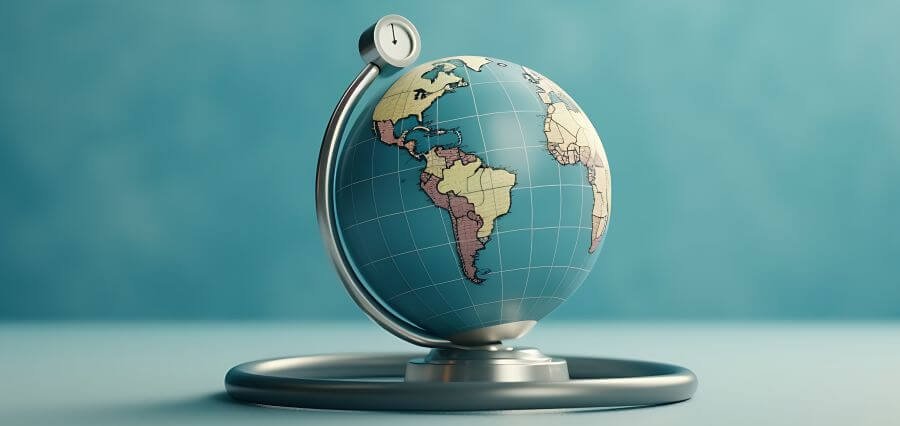In the picturesque scenes of Europe, where cobblestone streets wind through historic cities and rolling hillsides are dotted with quaint villages, there lies a less visible but deeply entrenched divide: healthcare inequalities. Despite the region’s reputation for universal healthcare systems and high-quality medical care, disparities in access, affordability, and outcomes persist, creating barriers to health and well-being for millions of Europeans.
This article embarks on a creative journey to explore the multifaceted issue of healthcare inequalities across Europe, weaving together narratives, anecdotes, and insights to shed light on this pressing social challenge and inspire innovative solutions for a healthier, more equitable future.
The Tale of Two Cities: Contrasting Healthcare Realities:
Imagine strolling through the vibrant streets of Paris, where world-class hospitals and cutting-edge medical facilities stand as beacons of modern healthcare. Now, transport yourself to the rural villages of Romania, where access to even basic healthcare services can be a distant dream. Contrasting these two extremes illustrates the stark disparities in healthcare access and resources that exist across Europe, underscoring the urgent need for targeted interventions to bridge the gap and ensure equitable access to care for all.
Unmasking the Hidden Faces of Inequality:
Behind the statistics and data lie the stories of real people grappling with the harsh realities of healthcare inequality. Meet Maria, a single mother in Spain who struggles to afford life-saving medications for her daughter due to high out-of-pocket costs. Journey with Ahmed, a Syrian refugee in Greece, who faces linguistic and cultural barriers when seeking medical care. These poignant narratives humanize the issue of healthcare inequality, highlighting the profound impact it has on individuals and families across Europe.
Navigating the Maze: Barriers to Access and Affordability:
In the labyrinth of Europe’s healthcare systems, barriers to access and affordability loom large, preventing many from obtaining the care they need. From long wait times and limited transportation options to high deductibles and out-of-pocket expenses, navigating the maze of healthcare can be daunting, particularly for vulnerable populations such as the elderly, refugees, and low-income individuals. Addressing these barriers requires a comprehensive approach that addresses structural, financial, and systemic challenges head-on.
Prescription for Change: Innovative Solutions and Best Practices:
Despite the daunting nature of healthcare inequalities, there are glimmers of hope and resilience shining through. In Denmark, community health centers provide integrated care and social support services to underserved populations, fostering holistic approaches to health and well-being. In Portugal, mobile healthcare units traverse remote regions, bringing medical care directly to those who need it most. These innovative solutions demonstrate the power of creativity and collaboration in addressing healthcare inequalities and improving health outcomes for all Europeans.
The Ripple Effect: Investing in Prevention and Public Health:
Beyond the confines of hospitals and clinics, the ripple effects of healthcare inequalities extend far and wide, impacting broader social determinants of health such as education, employment, and housing. By investing in preventive care, health education, and public health initiatives, European countries can address the root causes of health disparities and promote long-term health and well-being for all. From childhood immunizations to smoking cessation programs, proactive measures can yield significant dividends in reducing healthcare inequalities and fostering healthier communities.
Cultivating Compassionate Care: Empathy in Action:
At the heart of healthcare lies a fundamental principle: compassion. In the face of healthcare inequalities, cultivating empathy and understanding is more important than ever. Whether it’s a reassuring smile from a nurse, a listening ear from a physician, or a helping hand from a community volunteer, acts of kindness and compassion have the power to transcend barriers and bridge divides, fostering a sense of solidarity and support among all members of society.
The Call to Action: Building Bridges, Breaking Barriers:
As the sun sets on the European horizon, a new dawn of possibility emerges—a future where healthcare inequalities are but a distant memory. To realize this vision, we must heed the call to action and come together as a collective force for change. By building bridges across divides, breaking down barriers to access and affordability, and championing innovative solutions and compassionate care, we can create a brighter, healthier future for all Europeans.
Embracing Diversity in Healthcare Workforce: Europe is a melting pot of cultures, languages, and traditions, yet its healthcare workforce often lacks diversity and representation. By promoting diversity and inclusion in healthcare professions, European countries can better address the needs of diverse populations and foster culturally competent care. Initiatives such as mentorship programs for underrepresented minorities, language proficiency training for healthcare providers, and recruitment efforts in underserved communities can help build a more inclusive healthcare workforce that reflects the richness and diversity of European society.
The Bigger Picture
In an increasingly digital world, technology holds immense potential to bridge gaps in healthcare access and delivery. Telemedicine platforms, mobile health apps, and virtual care solutions offer convenient and cost-effective alternatives to traditional healthcare services, particularly for remote and underserved communities. By harnessing the power of technology, European countries can expand access to healthcare services, improve health literacy, and empower individuals to take control of their health and well-being.





